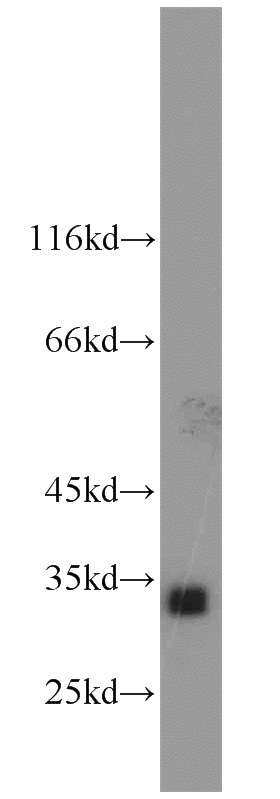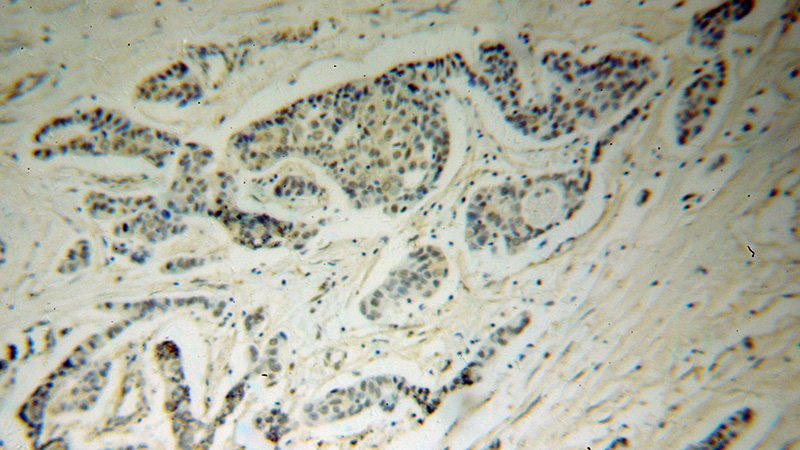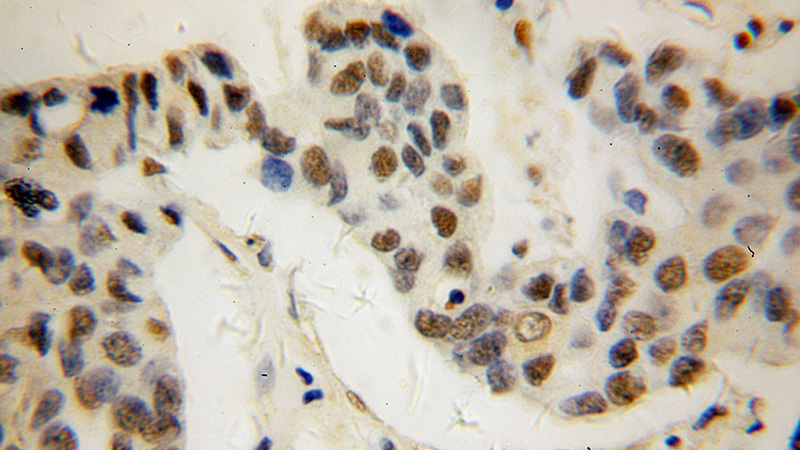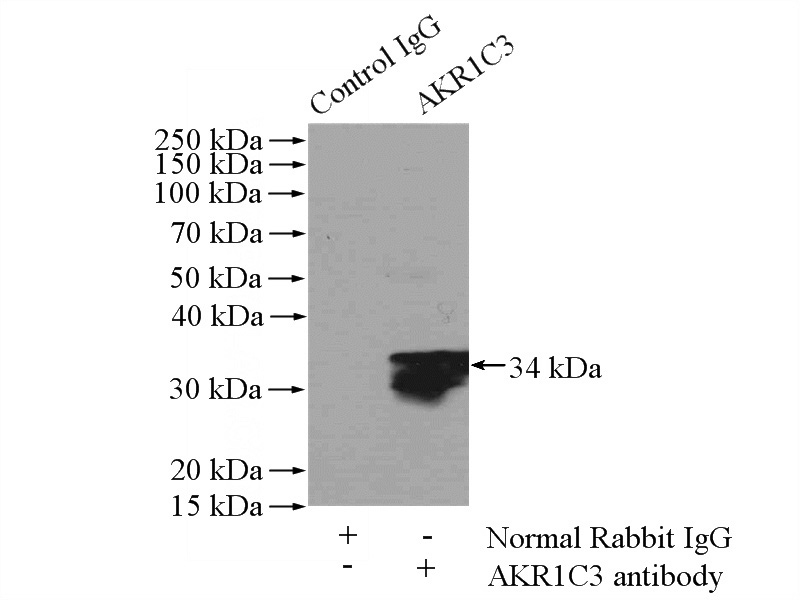-
Product Name
AKR1C3 antibody
- Documents
-
Description
AKR1C3 Rabbit Polyclonal antibody. Positive IHC detected in human breast cancer tissue. Positive IP detected in HepG2 cells. Positive WB detected in HepG2 cells, A549 cells, Jurkat cells, K-562 cells. Observed molecular weight by Western-blot: 34 kDa
-
Tested applications
ELISA, WB, IHC, IP
-
Species reactivity
Human; other species not tested.
-
Alternative names
17 beta HSD 5 antibody; 3 alpha HSD type 2 antibody; 3 alpha HSD type II antibody; brain antibody; AKR1C3 antibody; DD 3 antibody; DD3 antibody; DDX antibody; Dihydrodiol dehydrogenase 3 antibody; HA1753 antibody; HAKRB antibody; HAKRe antibody; hluPGFS antibody; HSD17B5 antibody; Indanol dehydrogenase antibody; KIAA0119 antibody; PGFS antibody; Prostaglandin F synthase antibody
-
Isotype
Rabbit IgG
-
Preparation
This antibody was obtained by immunization of AKR1C3 recombinant protein (Accession Number: NM_003739). Purification method: Antigen affinity purified.
-
Clonality
Polyclonal
-
Formulation
PBS with 0.1% sodium azide and 50% glycerol pH 7.3.
-
Storage instructions
Store at -20℃. DO NOT ALIQUOT
-
Applications
Recommended Dilution:
WB: 1:500-1:5000
IP: 1:500-1:5000
IHC: 1:20-1:200
-
Validations

HepG2 cells were subjected to SDS PAGE followed by western blot with Catalog No:107941(AKR1C3 antibody) at dilution of 1:1000

Immunohistochemical of paraffin-embedded human breast cancer using Catalog No:107941(AKR1C3 antibody) at dilution of 1:100 (under 10x lens)

Immunohistochemical of paraffin-embedded human breast cancer using Catalog No:107941(AKR1C3 antibody) at dilution of 1:100 (under 40x lens)

IP Result of anti-AKR1C3 (IP:Catalog No:107941, 4ug; Detection:Catalog No:107941 1:1000) with HepG2 cells lysate 2400ug.
-
Background
AKR1C3(Aldo-keto reductase family 1 member C3) is also named as DDH1, HSD17B5, KIAA0119, PGFS and belongsi to AKR1C family. .In humans, at least four AKR1C isoforms exist: AKR1C1, AKR1C2, AKR1C3, AKR1C4 and AKR1C3 shares >86% sequence identity with these three highly related human AKRs(PMID:18574251). It catalyzes the conversion of aldehydes and ketones to alcohols and androgen, estrogen, PG, xenobiotics metabolism. The rat kidney possesses a dimeric form of 75 kDa(PMID:18574251).
-
References
- Li H, Narahara H. 15-Deoxy-Δ(12,14)-prostaglandin J(2) induces growth inhibition, cell cycle arrest and apoptosis in human endometrial cancer cell lines. International journal of molecular medicine. 31(4):778-88. 2013.
Related Products / Services
Please note: All products are "FOR RESEARCH USE ONLY AND ARE NOT INTENDED FOR DIAGNOSTIC OR THERAPEUTIC USE"
